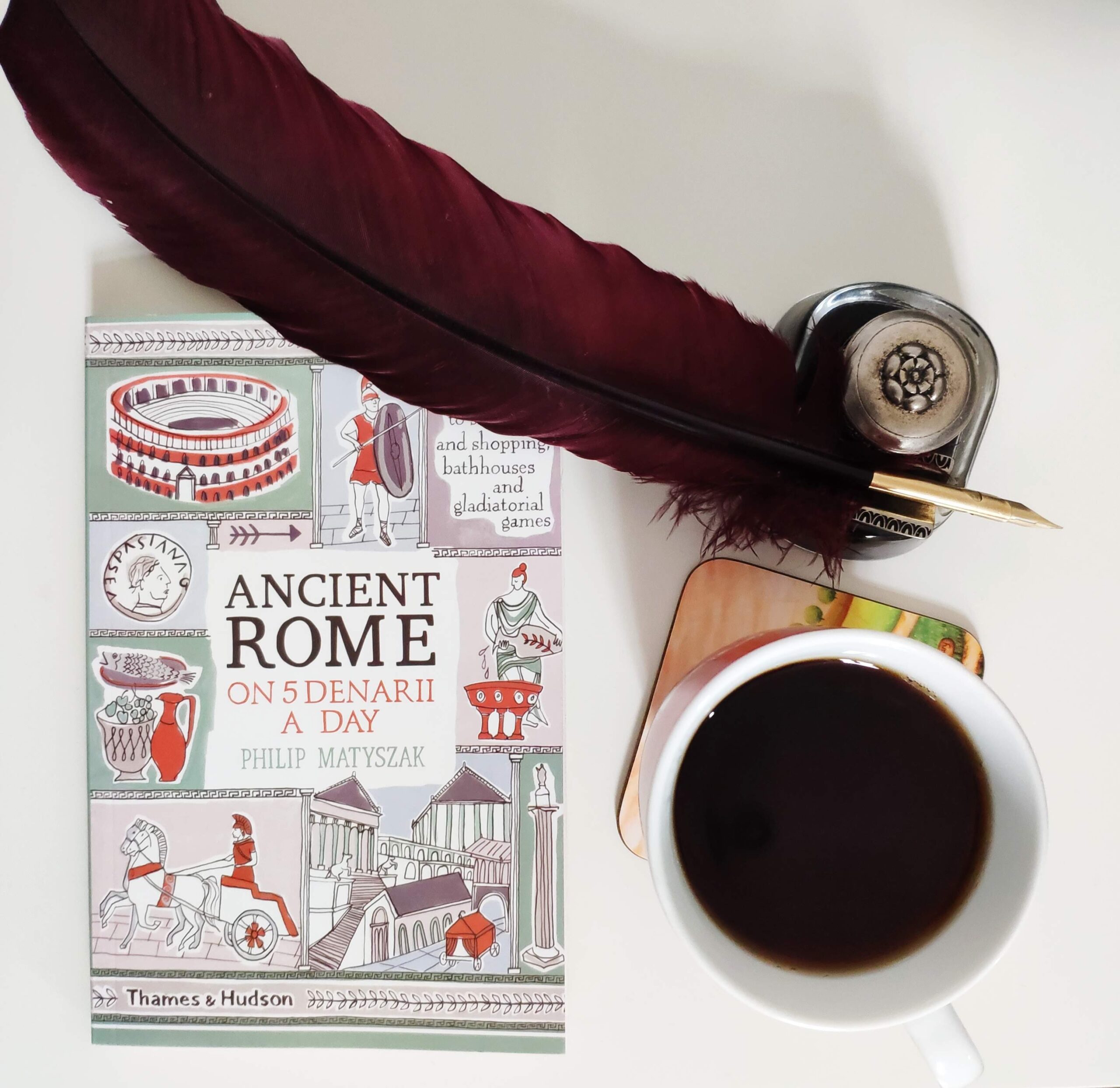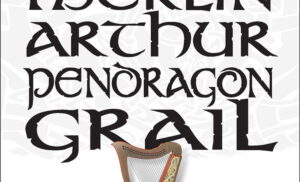
Ancient Rome on 5 Denarii a Day * Vacanze nell’Antica Roma con 5 denari al giorno (Eng/Ita)
If I were in Ancient Rome right now and wished to go there on holiday, I would definitely buy this travel guide. Rich in useful information and fun facts, it’s a brilliant handbook that would have certainly been very successful should have been published at the time.
The book’s structured as a travel guide and describes everything. How to get there; how to change money (yes, apparently the Romans invented travel cheques and services such as the modern Western Union!); what to see, where to have fun; what and how to eat and where to stay; and it obviously contains useful information about “the Roman etiquette” (i.e. if you were to offer food and shelter to a Roman visiting your town, he would invite you back in Rome).
Getting to Rome wasn’t easy nor fast, and you couldn’t even be sure to get there (some dishonest captain didn’t mind to steal one’s possessions and then dropping their passenger overboard once well offshore), so it was important to be extremely careful when planning to travel to Rome, which was also a very expensive city. Very funny the last section with the useful phrases in Latin.
This brilliant little book transports the reader back in time, in the splendour (and dangers) of Ancient Rome.
Here’s a quote from the book:
WHERE TO STAY - THE SEVEN HILLS
On arrival in Rome, take stock for a few moments. Where you are going to stay should not just be determined by the cost of your lodgings. The type of housing, quality of neighbour, distance to the sanitary facilities, and how far you are prepared to walk to anywhere interesting or important are all vital considerations.
When meeting Romans, knowing the basics of what to wear and what to eat will help to avoid unnecessary social embarrassment. Nothing is guaranteed to ruin a good dinner party like a guest who turns up wrongly dressed, and then blanches (or worse) when confronted with sow’s udders stuffed with giant African snails. And since Rome operates without street signs – on the friendly principle that if you don’t know where you are, you probably don’t belong and shouldn’t be there – some basic grasp of city navigation is essential.
The Romans navigate by their hills. You may hear phrases like ‘Aulus lives on the Caelian,’ or ‘It’s one of those shops in the Quirinal- Viminal valley,’ so it is important to know which hills are where.
*********************************************************************
Se in questo momento mi trovassi ai tempi dell'antica Roma e volessi andarci in vacanza, questa è la guida che comprerei. Ricca di informazioni utili e curiosità, è un brillante vademecum che sicuramente, se fosse esistito a quei tempi, sarebbe andato a ruba.
Il libro è strutturato proprio come una guida turistica e descrive tutto: i mezzi di trasporto per arrivarci, come cambiare la valuta (eh sì, pare che gli antichi romani usassero già i travel cheque e servizi come la moderna Western Union!), cosa visitare, cosa fare per divertirsi, cosa e come mangiare e dove alloggiare e, naturalmente, informazioni preziose sulle "regole di etichetta romane" (ad esempio, se si ospitava un romano a casa propria, questi avrebbe sicuramente ricambiato l'invito).
Non era né veloce né semplice arrivare a Roma, e non si aveva nemmeno la certezza di arrivarci (alcuni capitani poco onesti non esitavano a derubare i passeggeri e gettarli in mare aperto), quindi si doveva essere molto accorti nell'organizzare il viaggio, che comunque non era per tutte le tasche, essendo la vita a Roma molto costosa. Divertentissime anche le "frasi utili" in latino a fine libro.
Un libretto geniale (per qualche strano motivo non tradotto e pubblicato in italiano), interessante e divertente, che trasporta il lettore indietro nel tempo, nello splendore (e nei pericoli) dell'antica Roma.
Ecco un estratto dal libro:
DOVE ALLOGGIARE. I SETTE COLLI
Quando arrivi a Roma, fai il punto della situazione. Non scegliere il posto in cui alloggerai basandoti solo sul costo, ma tieni in considerazione anche il tipo di alloggio, il quartiere, la distanza dai servizi igienici e quanto sei disposto a camminare per raggiungere tutti i luoghi interessanti o importanti. Quando incontro dei romani, conoscere le basi sull'abbigliamento e le abitudini alimentari ti eviterà inutili imbarazzi. Niente rovina una bella cena quanto un ospite che si presenta non adeguatamente abbigliato e poi sbianca (o peggio) quando gli si presenta davanti un piatto di mammelle di scrofa ripiene di lumache africane. E poiché a Roma non ci sono cartelli stradali - secondo l'amichevole principio che, se non sai dove ti trovi, probabilmente non è il posto per te e non dovresti essere lì - sarebbe meglio avere almeno un'idea di come spostarsi in città.
I romani si regolano secondo i loro colli. Si sentono frasi come "Aulo vive sul Celio" o "È uno di quei negozi nella valle del Quirinale o Viminale", perciò è importante conoscere i colli.




